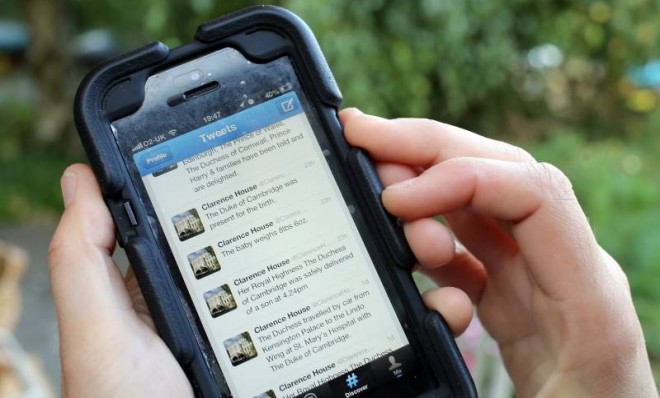The Twitter IPO: Why the micro-blogging site is no Facebook
Twitter enjoys distinct advantages over the social network


A free daily email with the biggest news stories of the day – and the best features from TheWeek.com
You are now subscribed
Your newsletter sign-up was successful
Twitter on Thursday announced on — where else? — Twitter that it had filed paperwork for its highly anticipated initial public offering, sending Twitter into a frenzy of excitement about Twitter's future on the stock market.
The "confidentially" part refers to a confidential IPO, a new kind of IPO established by President Obama's Jumpstart Our Business Startups (JOBS) Act. Under the provision, companies making less than $1 billion a year can file for an IPO without opening up their books to the public, at least until three weeks before they begin selling their shares.
That means the crystal-ball-gazing over Twitter's decision has been somewhat clouded — no one can say for sure what to expect.
The Week
Escape your echo chamber. Get the facts behind the news, plus analysis from multiple perspectives.

Sign up for The Week's Free Newsletters
From our morning news briefing to a weekly Good News Newsletter, get the best of The Week delivered directly to your inbox.
From our morning news briefing to a weekly Good News Newsletter, get the best of The Week delivered directly to your inbox.
That being said, we do have some clues about how Twitter would perform on the stock market, not to mention some fantastically horrible precedents set by the likes of Facebook, GroupOn, and other tech stars that ran aground on Wall Street.
Here is some relevant information: Twitter has close to 300 million users, according to The New York Times, and is growing; some hedge funds have valued the company as high as $14 billion, according to GigaOm, though other estimates hover in the $10 billion range; Twitter first became profitable only in the last quarter of 2012, clocking $100 million in revenue; and private shares of the company are reportedly selling on the so-called secondary market for between $18 to $22 a share.
Based on that skeletal description, it would be easy to conclude that Twitter shares more than a few similarities with Facebook prior to the social network's famously troublesome IPO. Like Facebook, Twitter is a very popular social media site that shows a lot of promise, but has yet to prove that it can make enough money to meet outsized expectations.
Twitter, a free service, makes money through advertising. In the hands of unforgiving investors, the company could come under pressure to insert more advertisements in users' streams, thereby annoying said users — a conundrum that bedevils Facebook. Twitter, like Facebook, will also come under pressure to share with marketers its trove of user data.
A free daily email with the biggest news stories of the day – and the best features from TheWeek.com
However, unlike Facebook, Twitter has become wholly intertwined in the media landscape, becoming a better vehicle for product-pushing and marketing campaigns. Furthermore, Twitter has an established presence on mobile, which Facebook was late to. Finally, Twitter has the good fortune of being able to learn from Facebook's IPO, particularly when it comes to pricing your shares reasonably.
Analysts expect Twitter to debut on the stock market later this year or early 2014.
Ryu Spaeth is deputy editor at TheWeek.com. Follow him on Twitter.
-
 How to Get to Heaven from Belfast: a ‘highly entertaining ride’
How to Get to Heaven from Belfast: a ‘highly entertaining ride’The Week Recommends Mystery-comedy from the creator of Derry Girls should be ‘your new binge-watch’
-
 The 8 best TV shows of the 1960s
The 8 best TV shows of the 1960sThe standout shows of this decade take viewers from outer space to the Wild West
-
 Microdramas are booming
Microdramas are boomingUnder the radar Scroll to watch a whole movie